The conquest of the system lasts about 2-5 turns and looks quite unintelligible, so I suggest:
1) Remove the all-imperial configuration of the ground army and make the configuration of the composition separately in the system for each planet. Accordingly, for the attackers to form a combat group at the beginning of the ground operation. Initially, to give access to all types of troops. Technologies can reduce penalties from the type of planets or be able to use where it was not possible (for example, air troops on barren planets).
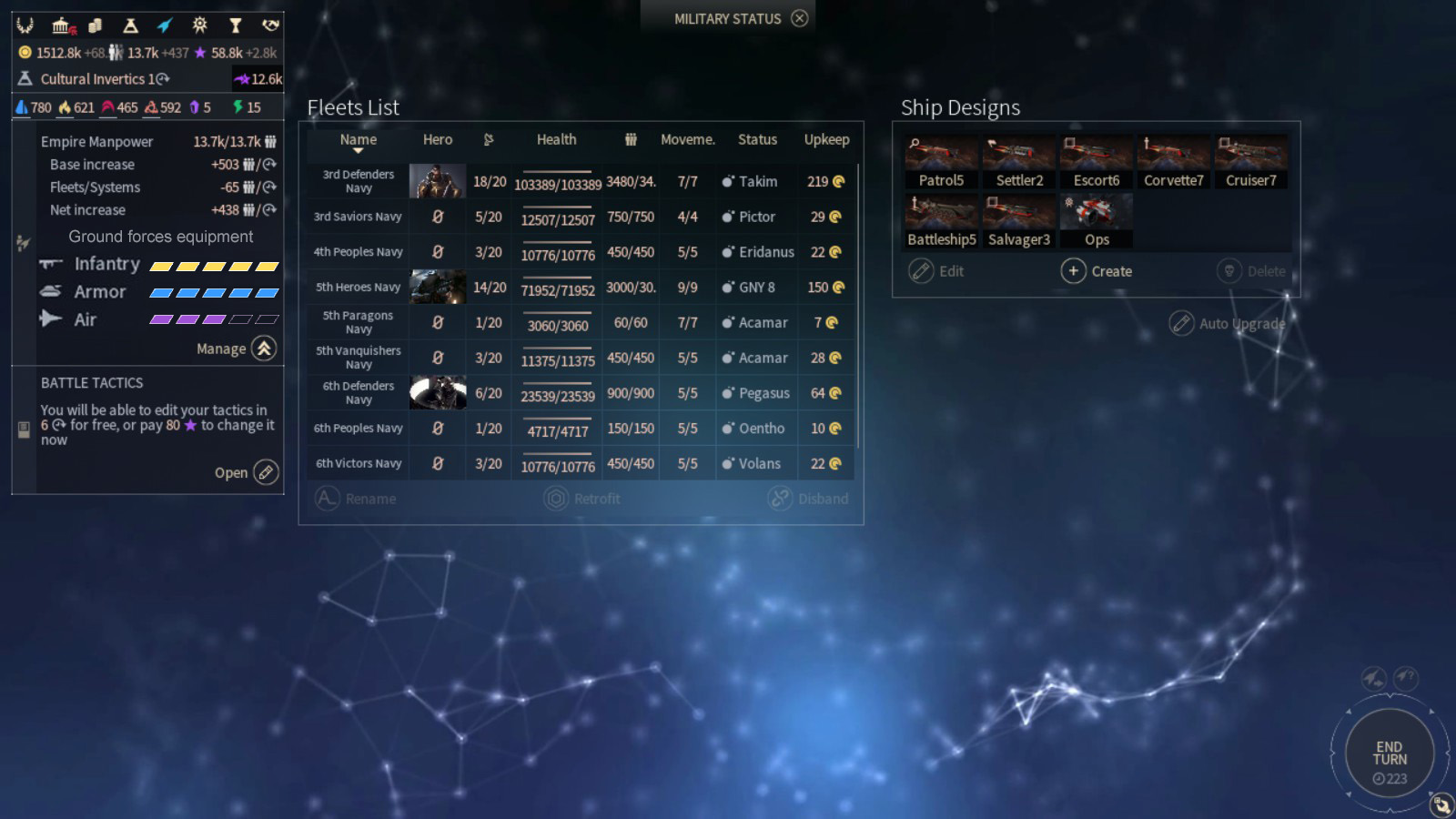
2) When you press the "ground invasion" button, open the strategy window, which determines the composition of the combat group and the choice of the planets for the attack, that is, choose between the attack with all the forces one planet, divide troops into two planets or attack all. The composition of the defending forces approximately (+ - 30%) can be learned with the help of probes of research ships (otherwise the composition is unknown). Show the results of the battle on all the planets in one window.
Here a sketch:
а) Attack to one planet with all forces,
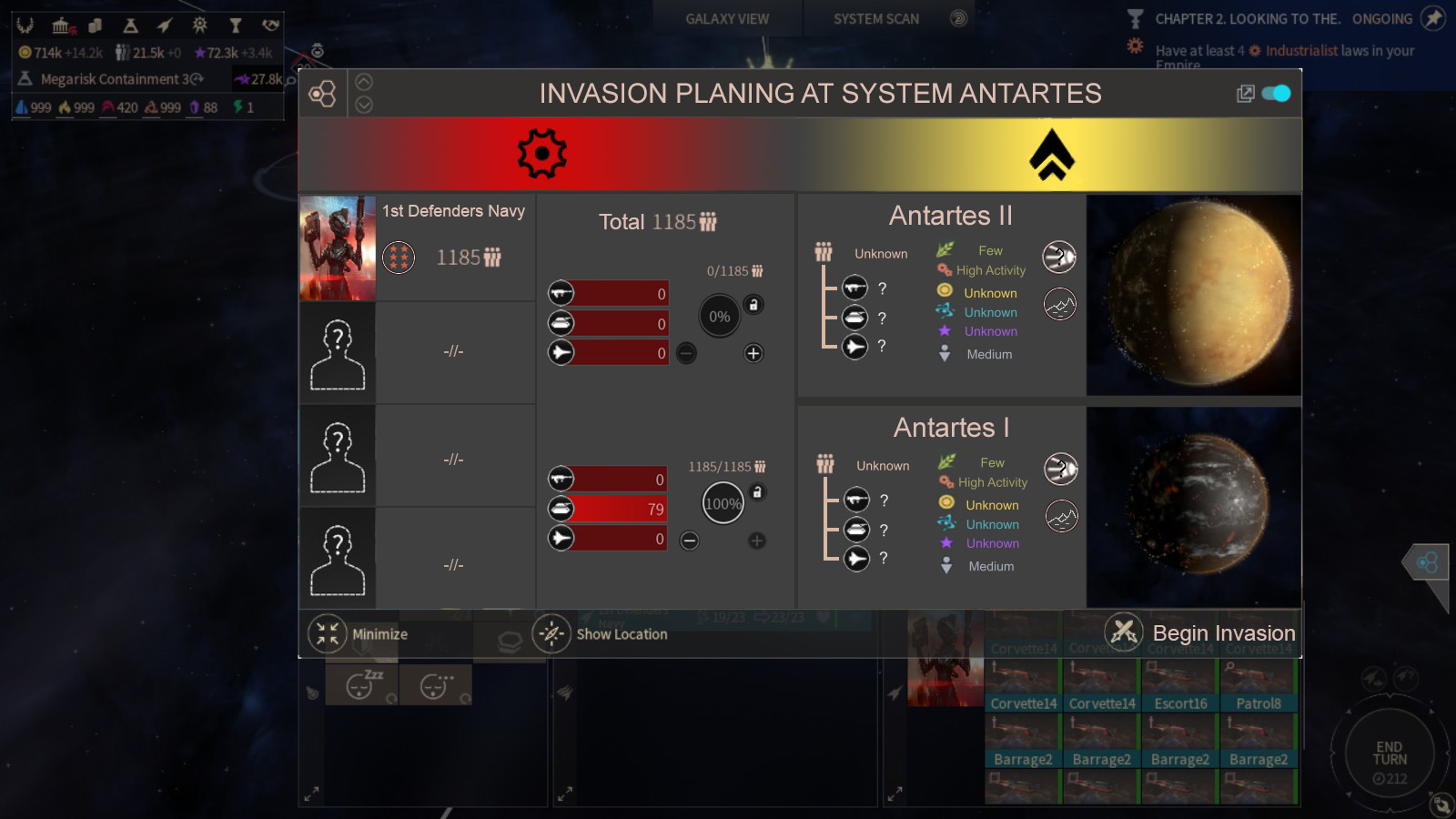
b) dividing forces to two planet with different composition of troops,
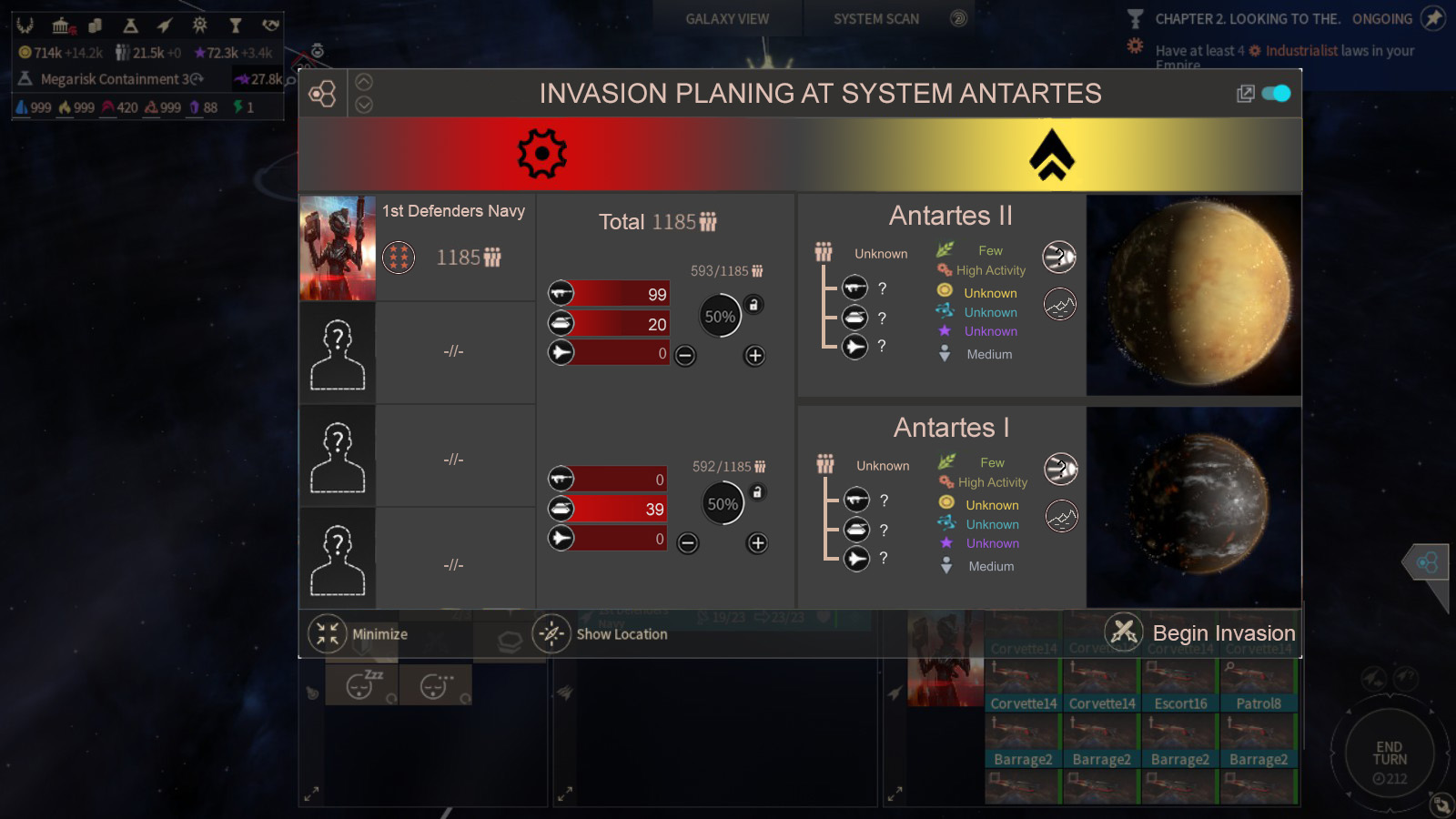
c) after clicking "Begin invasion", the tactics selection screen is displayed.
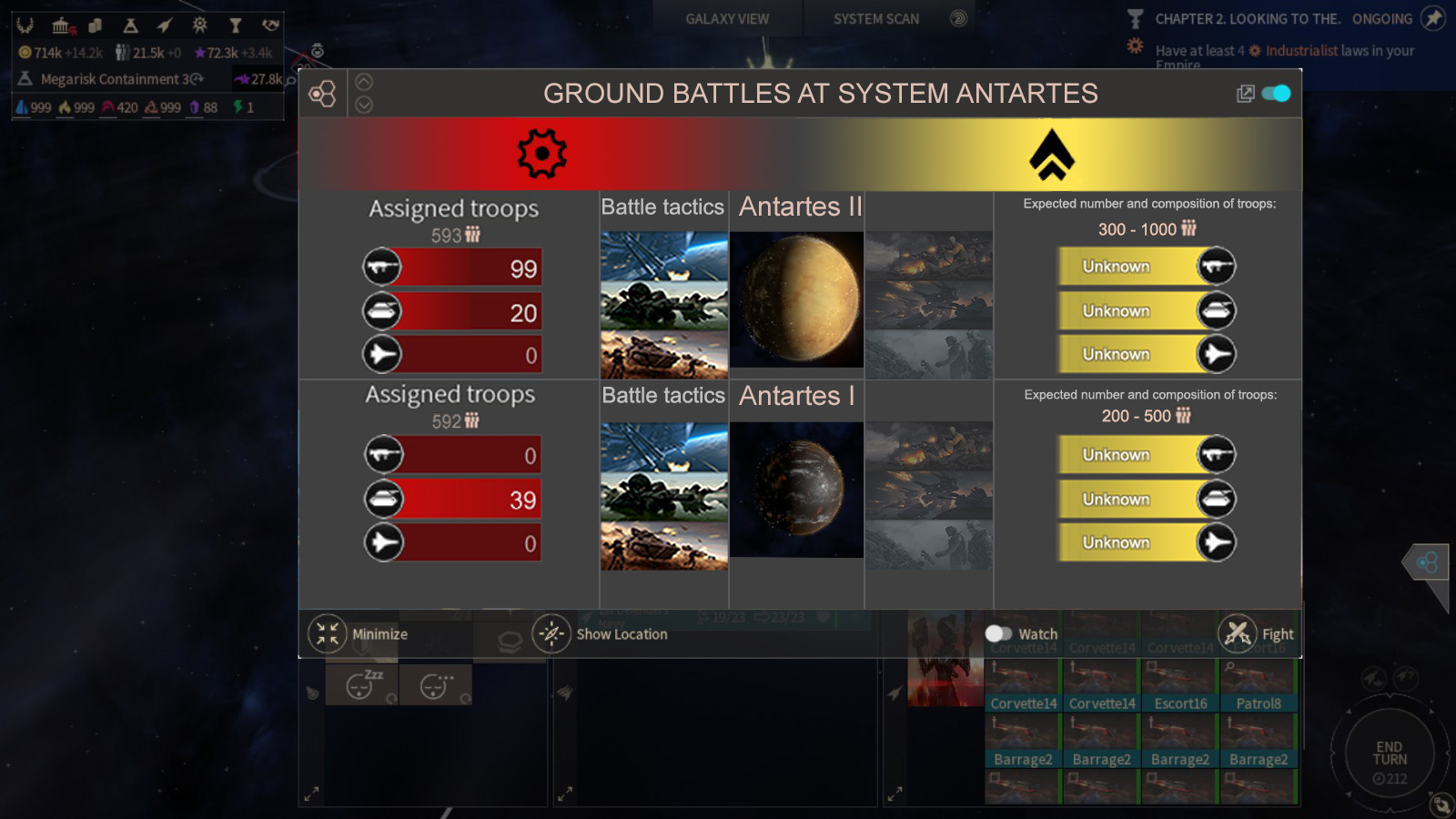
d) battle results screen.
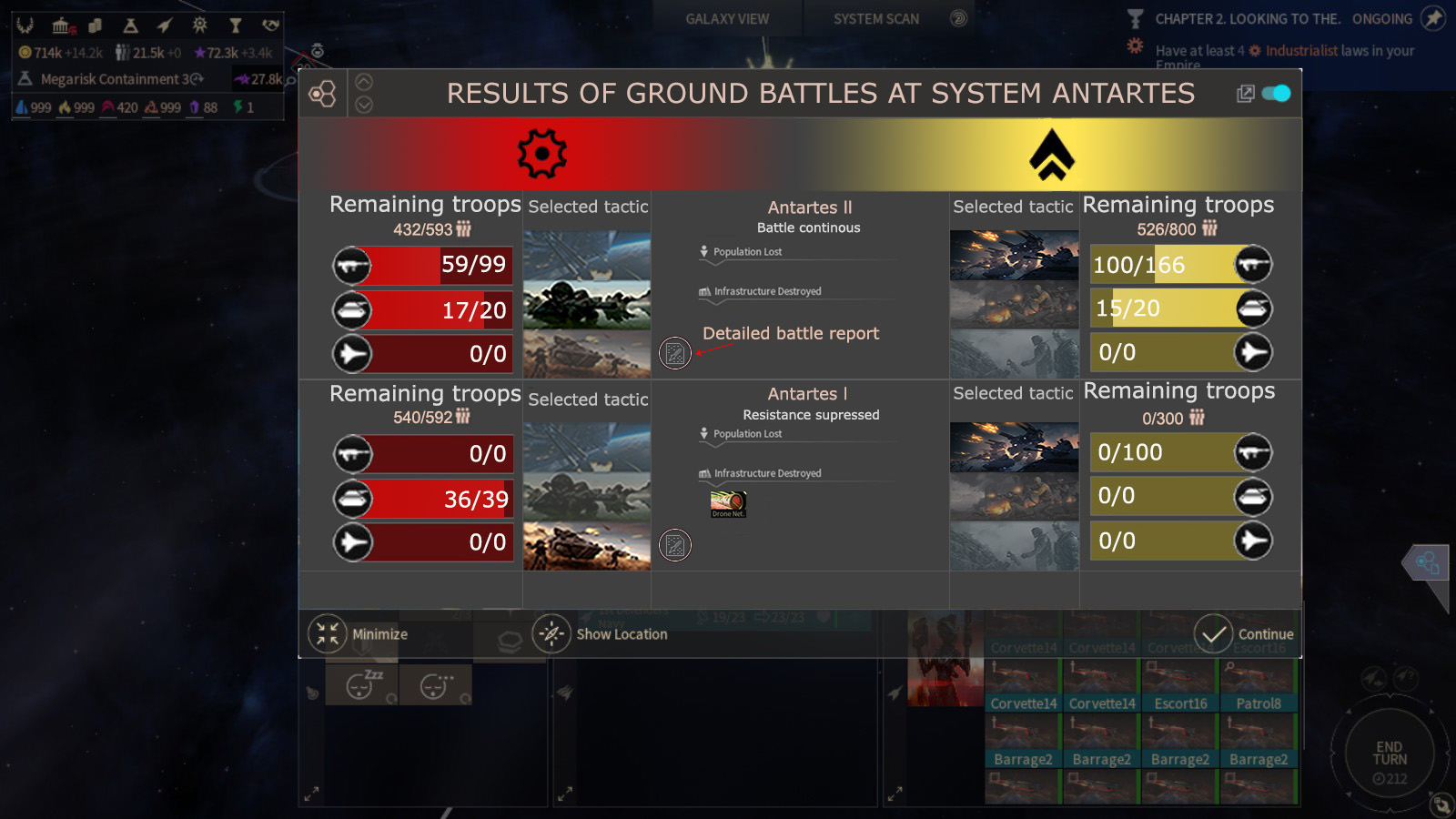
e) Some thoughts about reconnaissance probes.

3) If you successfully capture one of the planets of the system, choose the next option for the combat group, that is, either attack the next planet, dig in (to counter counterattack defenders), recruit volunteers among the population (effectiveness depends on the level of approval at the time of the invasion), or robbery Improvement and obtaining of dust and a small amount of resources produced on the planet). Accordingly for the defending side - counterattack, guerrilla actions on the captured planet (depends on the recognized at the time of the invasion), or dig (increase hp units).
а) This screen appears at beginning of next turn after capturing planet.
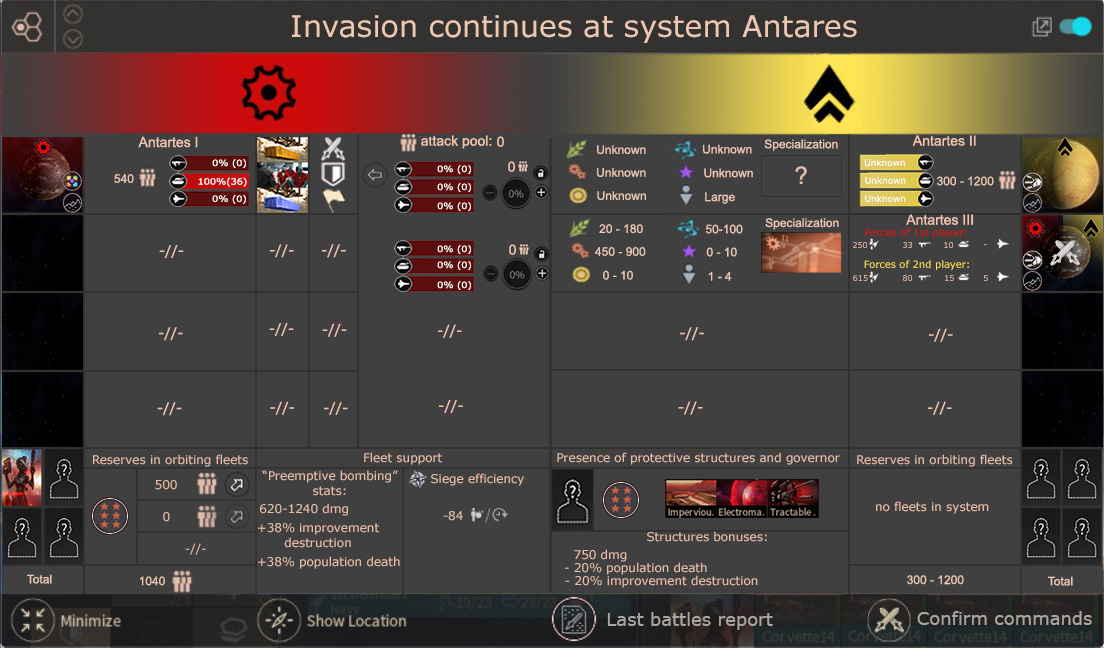
b) That's what the defender sees at the same time.
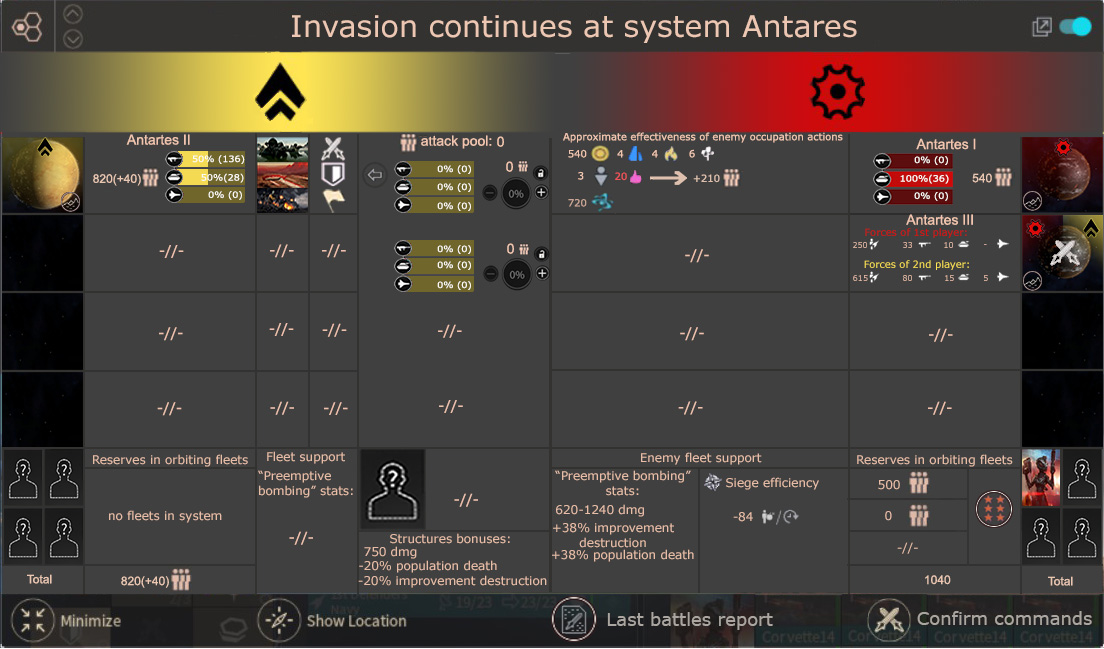
c) Tactics for ground battles phase.
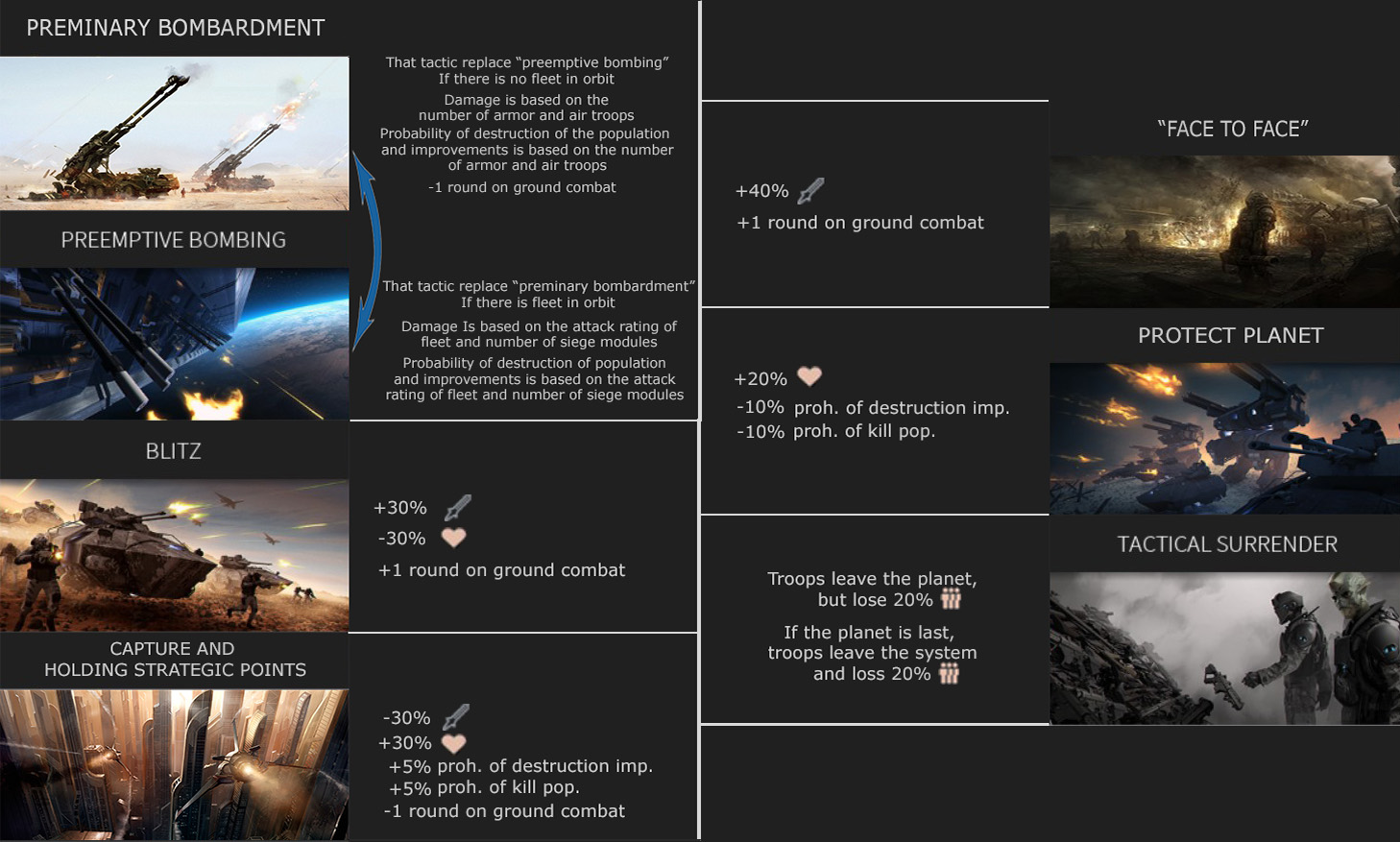
4) Of course to make planetary effects of impact for planets with a complex surface - for example:
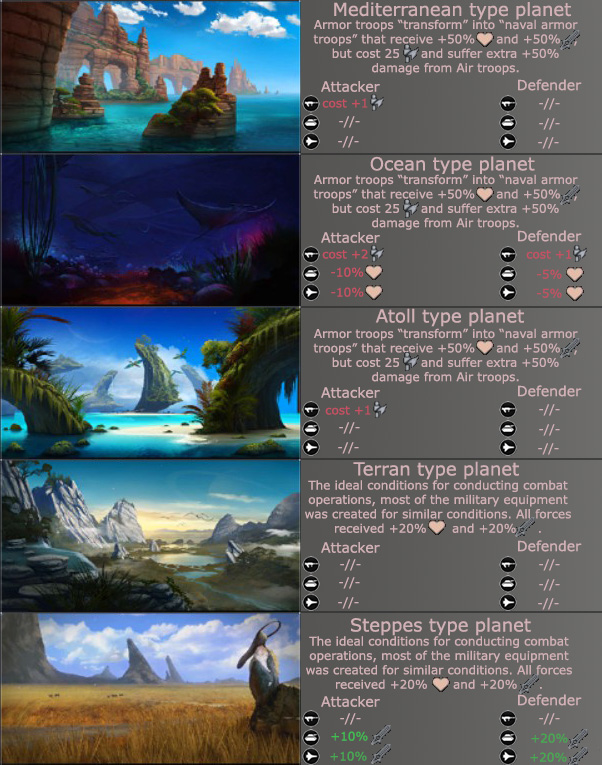
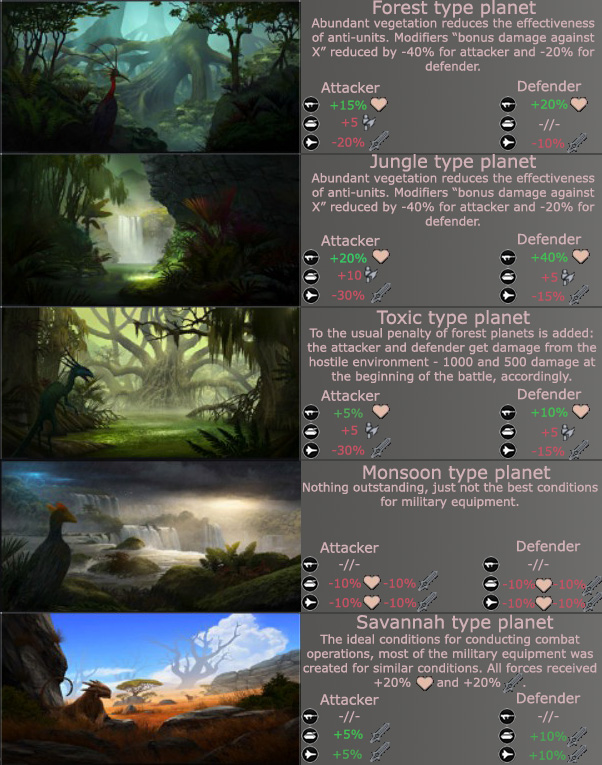
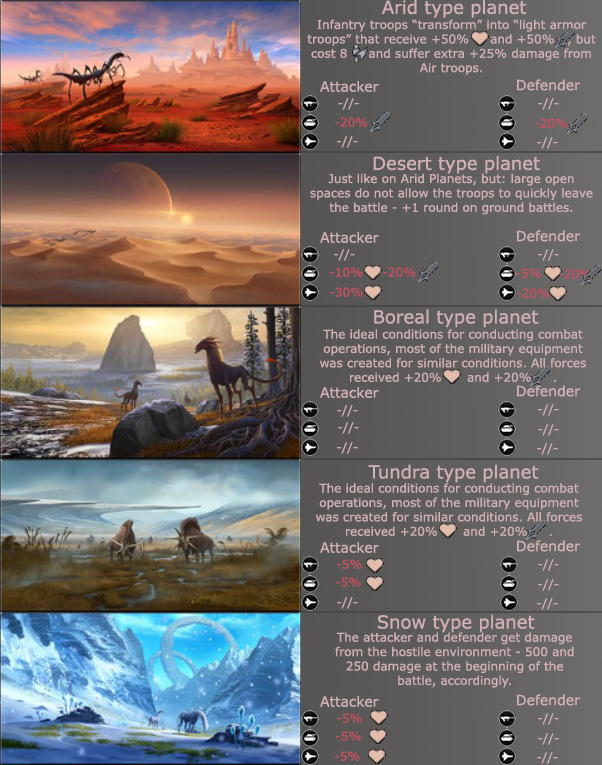
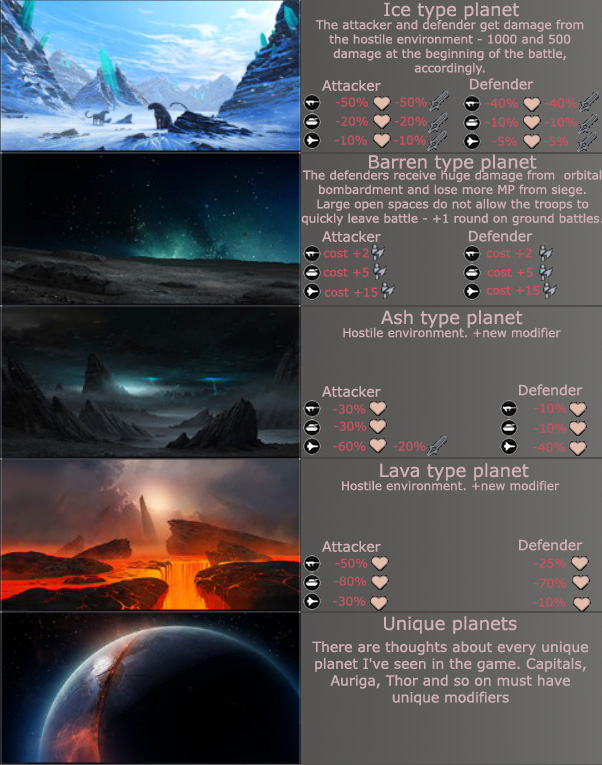
5) Add specialization to the planets that increase the protection of the subdivisions located on it and slightly increase the growth of Man Power.
a) Small changes on the main screen of the system,
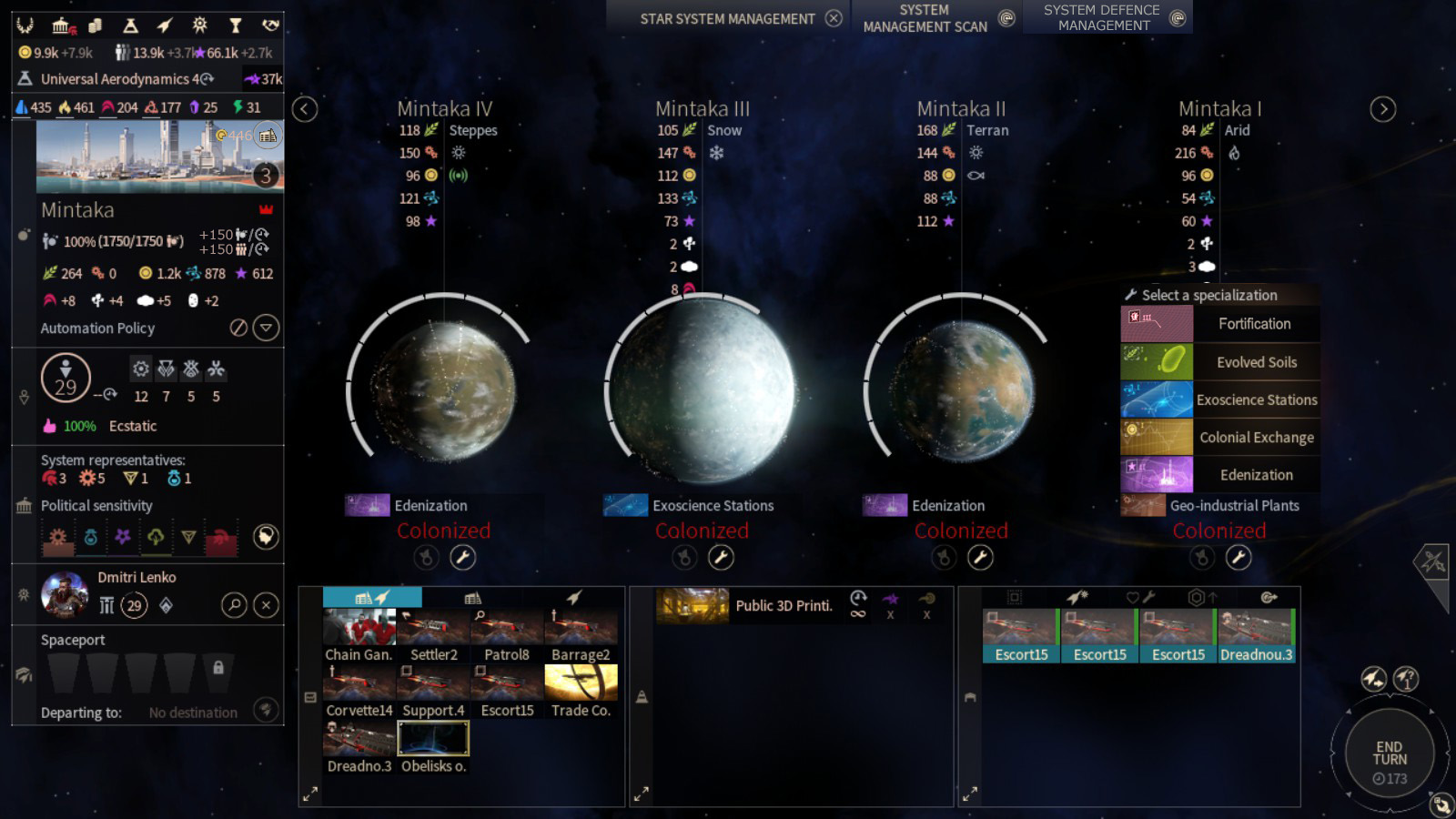
b) planet military specialization. I think that changing the specialization of the planet for military specialization should be a very costly action. The values of the bonuses are presented for a better understanding. Military specialization will not be automatically replaced (like others) after studying the relevant technologies, this will be dealt with by the player.
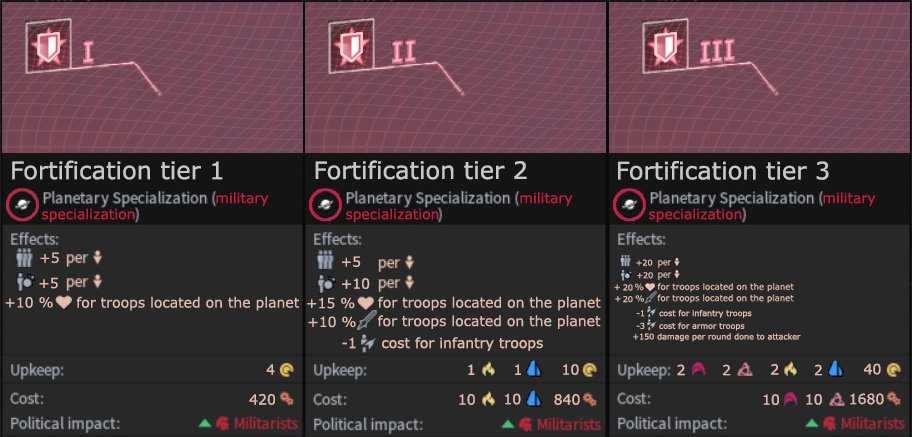
c) system defence management, about what I wrote in point 1).
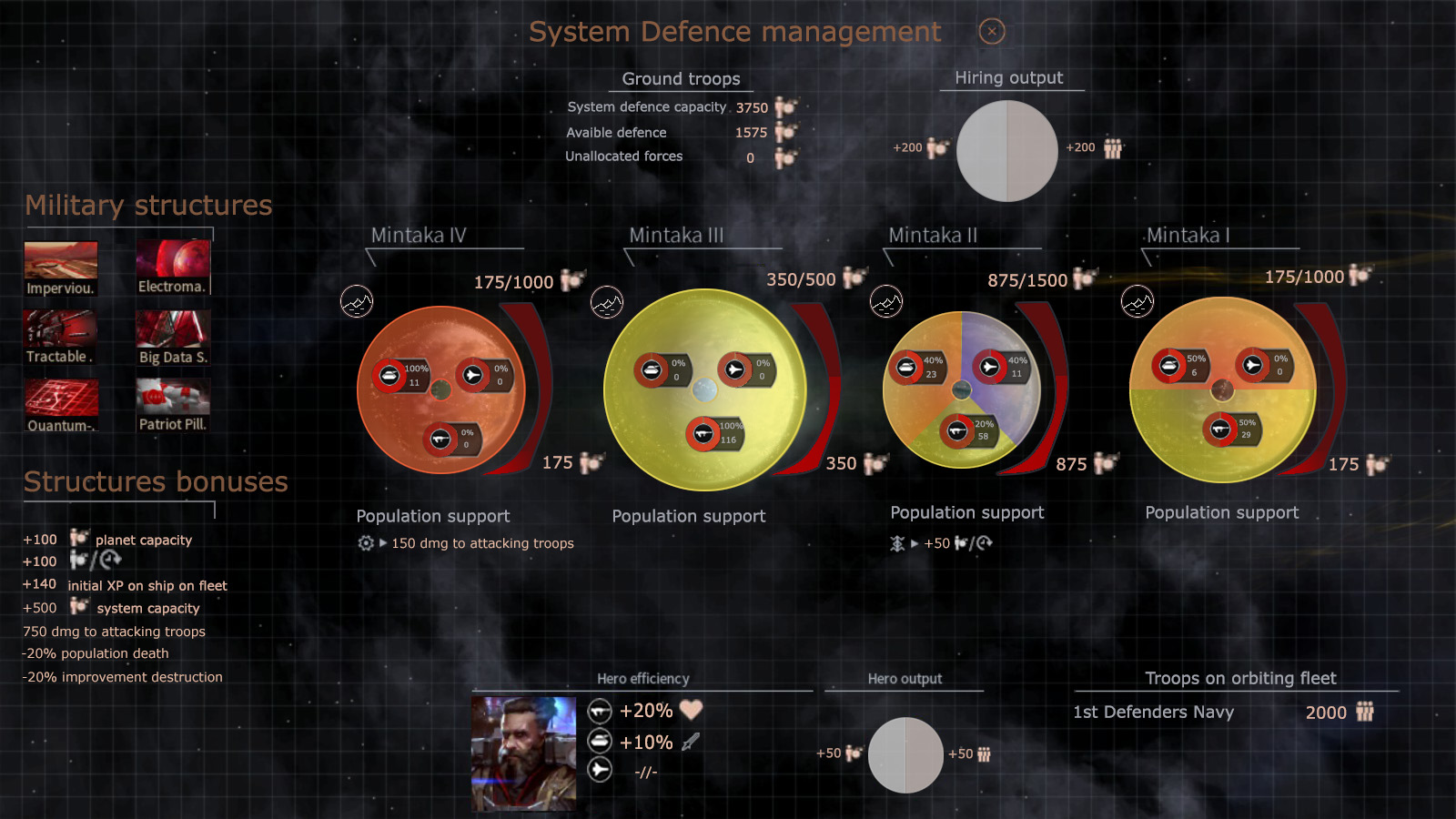
6) And of course, the heroes in the orbit of the attacked system must give bonuses to ground units. For example:
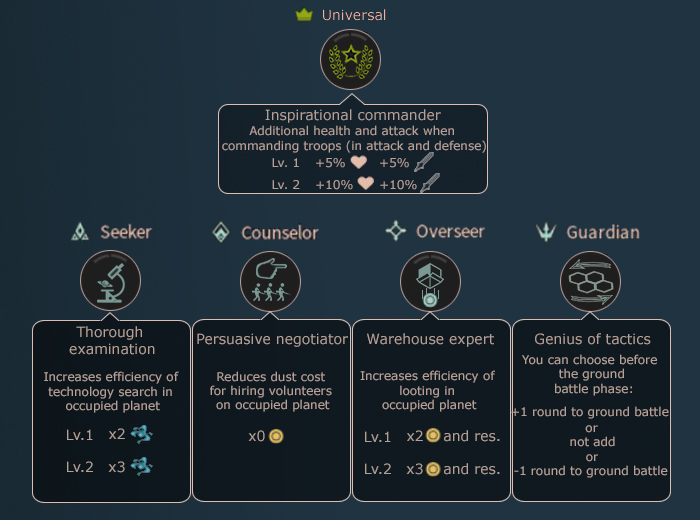
Sorry for my English.
Here answers to some questions:
Control over the system only passes after the capture of all the planets. The invasion continues as long as there are at least some units in the system, at this time, what I have described in step 3) occurs. If the war ends (truce) during the invasion, the ground units are evacuated to the nearest friendly system in the transport that is created as when the population is moved from the system to the system, and the returned units are added into the imperial MP pool.
Explanation of the picture in point 2, а):
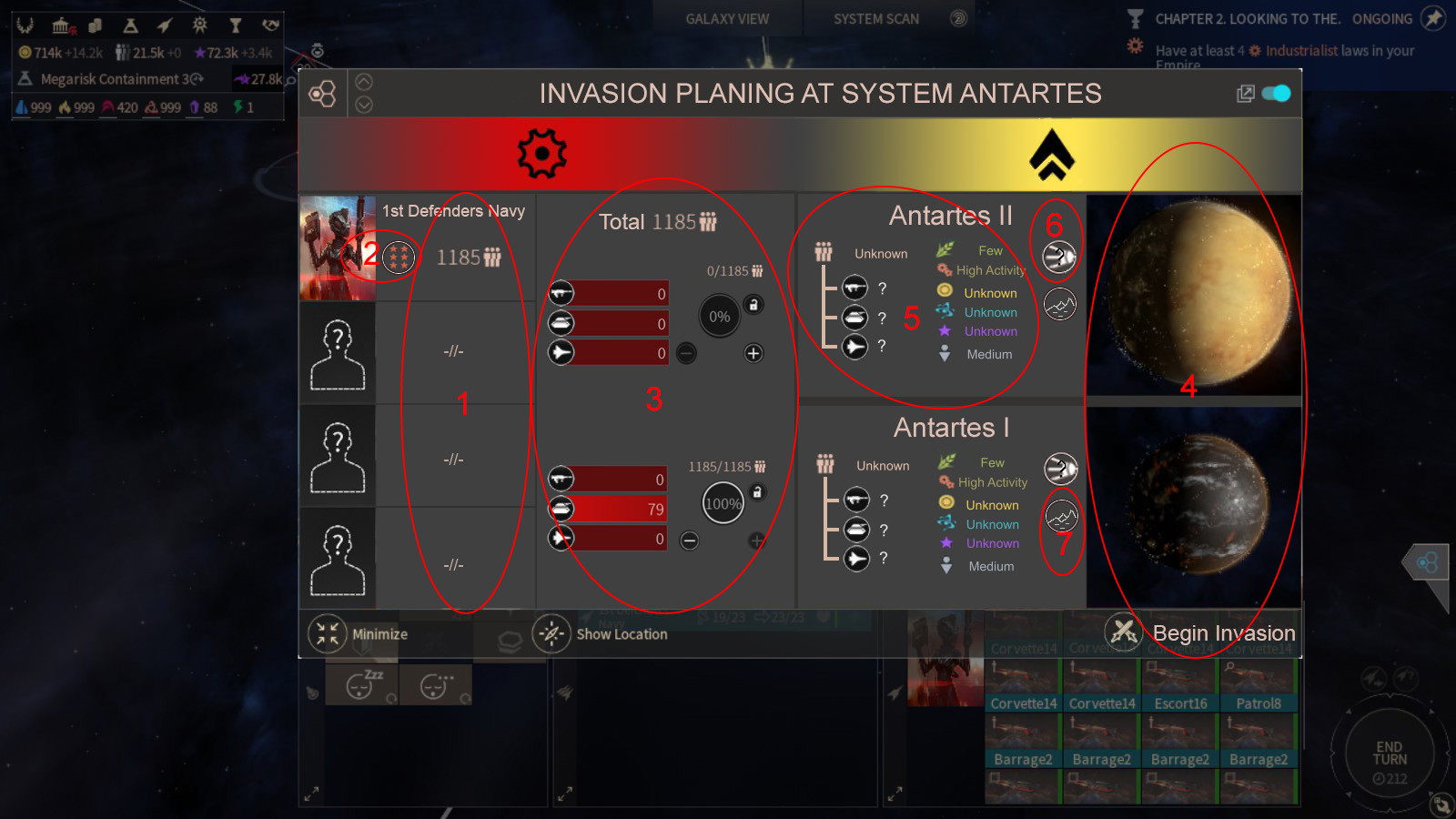
1) MP of orbiting fleets;
2) This button shows which bonuses are provided to the invading forces by the hero in orbit;
3) This shows the overall MP of the fleets and the planning of the attack;
4) Visual representation of the planet;
5) Information about the planet, the composition of troops and the population.
6) This button is for launching a reconnaissance probe that will give information about the planet (I will write about probes later).
7) This button shows the influence of the planet on the conduct of combat operations (after the launch of the drone more detailed, since unusual anomalies, too, should be influenced in some way).
Later, I'll add a couple more elements to this screen (for example, showing the presence of protective structures, which I'll write about later, too).
Explanation of the picture in point 3, а):
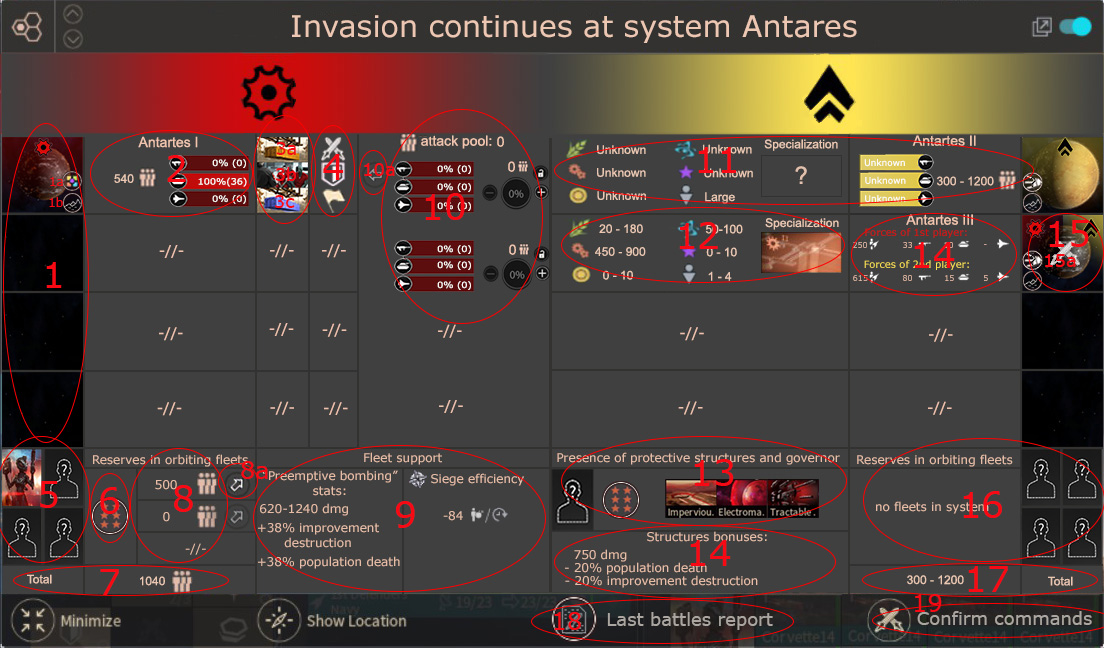
1) Visual representation of planets, сolor and emblem demonstrates who controls planet.
a) this button shows the influence of planet on the conduct of combat operations;
b) this button shows food, science, production, influence, dust income and population. Also the availability of resources and luxury on this planet.
2) Number of MP and composition of troops on planet, on bars you can adjust the composition of the army.
3) Occupation options:
a) looting. Player receive dust, resources and luxury (if they exist on planet). Based on planet income and number of MP;
b) recruitment of volunteers, mercenaries, traitors. Generate MP. Based on planet population and approval raiting. Costs dust;
c) search and technology gathering. Generate science. Based on planet research income and precense of science improvments on this system.
4) Commands for troops on planet:
a) attack - moves MP into MP pool;
b) fortification - troops receive +5% health and +2% damage for every turn of using this option;
c) retreat - troops leave planet and move to another captured or orbiting fleet. If fleet and captured planets do not remain, create a civilian ship and go to the nearest friendly system - the invasion ends.
5) Heroes on orbing fleets, сhoose who will command and accordingly give their bonuses to ground troops.
6) This button shows bonuses of the hero commander.
7) The total number of MP that can be used to attack.
8) MP on orbiting fleets.
a) this button moves MP into MP pool.
9) Information about influence of fleet on ground battles.
10) MP pool - here the direction of attack is determined, the number of troops involved and their composition.
a) This button move troops to the planet from MP pool.
11) Information about the planets Antartes II and which is controlled by enemy. Since the reconnaissance drone was not used, little is known (or nothing at all).
12) On Antartes III there is a battle, so there is inaccurate information about planet income.
13) Information about Governor who commander of defense and defense structures.
14) Defence structures bonuses.
15) Visual representation of going battle.
a) This button launch the reconnaissance drone (If available).
16) MP reserves on enemy fleet.
17) The total number of enemy MP that can be used to counterattack.
18) Last battles report.
19) This button starts the phase of ground battles.
Explanation of the picture in point 3, b):
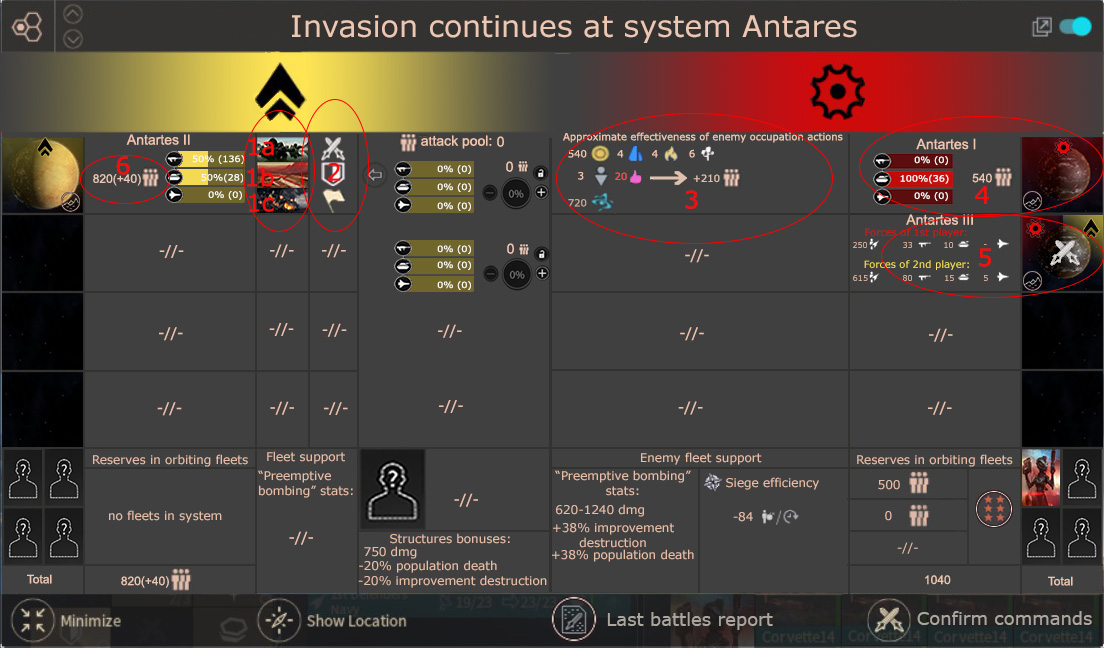
Everything looks almost same as the attacker's face, except for some important details:
1) Martial Law options:
a) Support for guerrilla activities on captured planets and special operations - deals guaranteed damage depending on total number of armed forces in system and an additional based on the amount of population on planet and approval rating.
b) Strengthening and deepening of defense - 5% attack and 10% health by defending troops for each turn of use of this option.
c) Accelerated training of troops - + MP, but -5% attack -5% health for each use. Addition MP, is based on the number of people on the planet.
2) Commands for troops on planet:
Counterattack - moves MP into MP pool
Readiness for defense - reduces chances of loss of population and buildings (10%)
Retreat - troops leave planet and move to another planet. The planet surrenders to invaders. If fleet and planets do not remain, create a civilian ship and go to the nearest friendly system - loss of control over stellar system. If the system has an enemy fleet: -20% MP.
3) Information on the effectiveness of enemy occupation actions.
4) The latest accurate data on number of enemy troops on captured planet.
5) Ongoing battle.
6) Passive hiring to the army. 5 MP per Population.
I created two more ideas strongly connected with this one -
Consequences of a long siege and using "preemptive bombing" and Population composition of troops.
If interested, please have a look.

























Comments
Moderate comment
Annotate comment